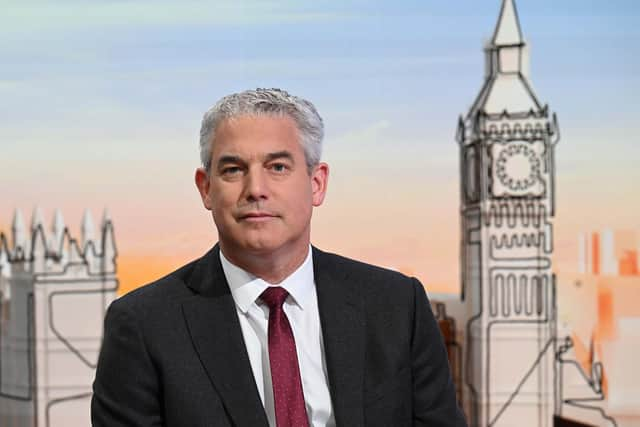New lung cancer screening programme can change thousands of lives: Steve Barclay
That matters because NHS England states that when cancer is caught at an early stage, patients are nearly 20 times more likely to get at least five years to spend with their families.
We all know that smoking is the leading cause of lung cancer. It is responsible for almost three quarters of cases, and in deprived areas people are four times more likely to have smoked. We have deployed mobile lung trucks equipped with scanners to busy car parks in 43 deprived areas across England. Before the pandemic, patients from those areas had poor early diagnosis rates, with only a third of cases caught at stage one or two. Thanks to our targeted programme, three quarters of lung cancer cases in those communities are now caught at stage one and two.
Advertisement
Hide AdAdvertisement
Hide AdTargeted lung cancer checks work. They provide a lifeline for thousands of families. We need to build on that progress, which is why we will expand the programme so that anyone in England between the ages of 55 and 74 who is at high risk of developing lung cancer will be eligible for free screening, following the UK National Screening Committee’s recommendation that it will save lives. It will be the UK’s first and Europe’s second national lung cancer screening programme. If results match our existing screening, when fully implemented the programme will catch 8,000 to 9,000 people’s lung cancer at an earlier stage each year. That means that each and every year around 16 people in every English constituency will be alive five years after their diagnosis who would not have been without the steps we are taking today. That means more Christmases or religious festivals with the whole family sitting around the table.


Alongside screening to detect conditions earlier, we are investing in technology to speed up diagnosis. We are investing £123 million in artificial intelligence tools such as Veye Chest, which allows radiologists to review lung X-rays 40 per cent faster. That means that suspicious X-rays are followed up sooner and patients begin treatment more quickly.
How will our lung cancer screening programme work? It will use GP records to identify current or ex-smokers between the ages of 55 and 74 at a high risk of developing lung cancer, assessed through telephone interviews. Anyone deemed high risk will be referred for a scan, and will be invited for further scans every two years until they are 75.
Even if they are not deemed at high risk of lung cancer, every smoker who is assessed will be directed towards support for quitting because, despite smoking in England being at its lowest rate on record, tobacco remains the single largest cause of preventable death. By 2030, we want fewer than 5 per cent of the population to smoke.
Advertisement
Hide AdAdvertisement
Hide AdThe lung cancer screening programme has been a game changer for many patients: delivering earlier diagnoses, tackling health inequalities and saving lives.
Steve Barclay is the Health Secretary. This is an edited version of a Parliamentary speech.